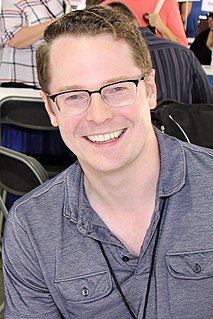A Quote by Jennifer Higdon
I always tell people that my music should speak to them... and that they shouldn't feel obligated to say why or how. All reactions are valid; the important thing is to have the experience.
Related Quotes
You can't ask me to explain the lyrics because I won't do it...I always believed that I have something important to say and I said it. That's why I survived because I still believe I've got something to say. ... I don't like overdubs, never liked them. ... The music business doesn't interest me anymore...Don't the people you're around shape the music, is that what you're saying? Everything does. ... I'm not joking around when I've said occasionally, trying to learn how to play a D chord properly has been a very big thing for me.
I learned very early on not to speak to my folk from on high, but to get down with them, beside them, showing them how to act rather than telling them. And I suggested that they should do the same with one another: that they didn't need a book of rules to tell them what to do and what not to do, but experience and action.
I do believe young people should be obligated to try different types of music - that is what education is. But once you're in a situation as an adult, it doesn't benefit anybody - at least in my experience - to force music on people that they don't like or do not have an interest in - whether it's three-hundred years old or newly written.
Why do we tell stories? It's because we want to connect to people, we want to tell them who we are, we want to tell them a story that affects us, that impacts us. And to help a young filmmaker doing a short or independent film is my testament, I think, is my desire to really make sure that our younger generations get passed along all the elders' experience and to literally have the image - to literally carry them on their shoulders and say, 'This is what the world is. This is how the world operates. Let me show you how.'
I feel that other people's suggestions are very dangerous. Yet, I can't say that they are always destructive or not useful. Perhaps, rather than having other people tell you how you should improve your work, they should just tell you how they understand your work, what they got out of it, so that you can figure out yourself if what you did was right or wrong.
There is one thing I should say, and it's important: Young Broadway singers and anybody who is an orator of any kind - lawyers who have to speak in court or pastors or anyone who has a lot of stress on their vocal cords: You should do the maintenance. You should do whatever it takes to feel fresh and good.
The only thing you should have to do is find work you love to do. And I can't imagine living without having loved a person. A man, in my case. It could be a woman, but whatever. I think, what I always tell kids when they get out of class and ask, 'What should I do now?' I always say, 'Keep a low overhead. You're not going to make a lot of money.' And the next thing I say: 'Don't live with a person who doesn't respect your work.' That's the most important thing—that's more important than the money thing. I think those two things are very valuable pieces of information.
Why would anybody connect to someone who has everything going for them? It's the person who has faults that people want to connect to. So people identify with certain insecurities on stage and just by me talking about my diabetes people come up to me after the show and tell me "Gabe, my blood sugar is out of control and I feel you". That's the first thing they say, they say "I feel you!".
I'm not a propaganda machine. I tell things how I see them. When I say, for example, that corruption is not the only thing the West should think about when they think about Nigeria, I'm not saying it doesn't exist but that people have the complete wrong focus. There's music, there's art, there's culture.








































